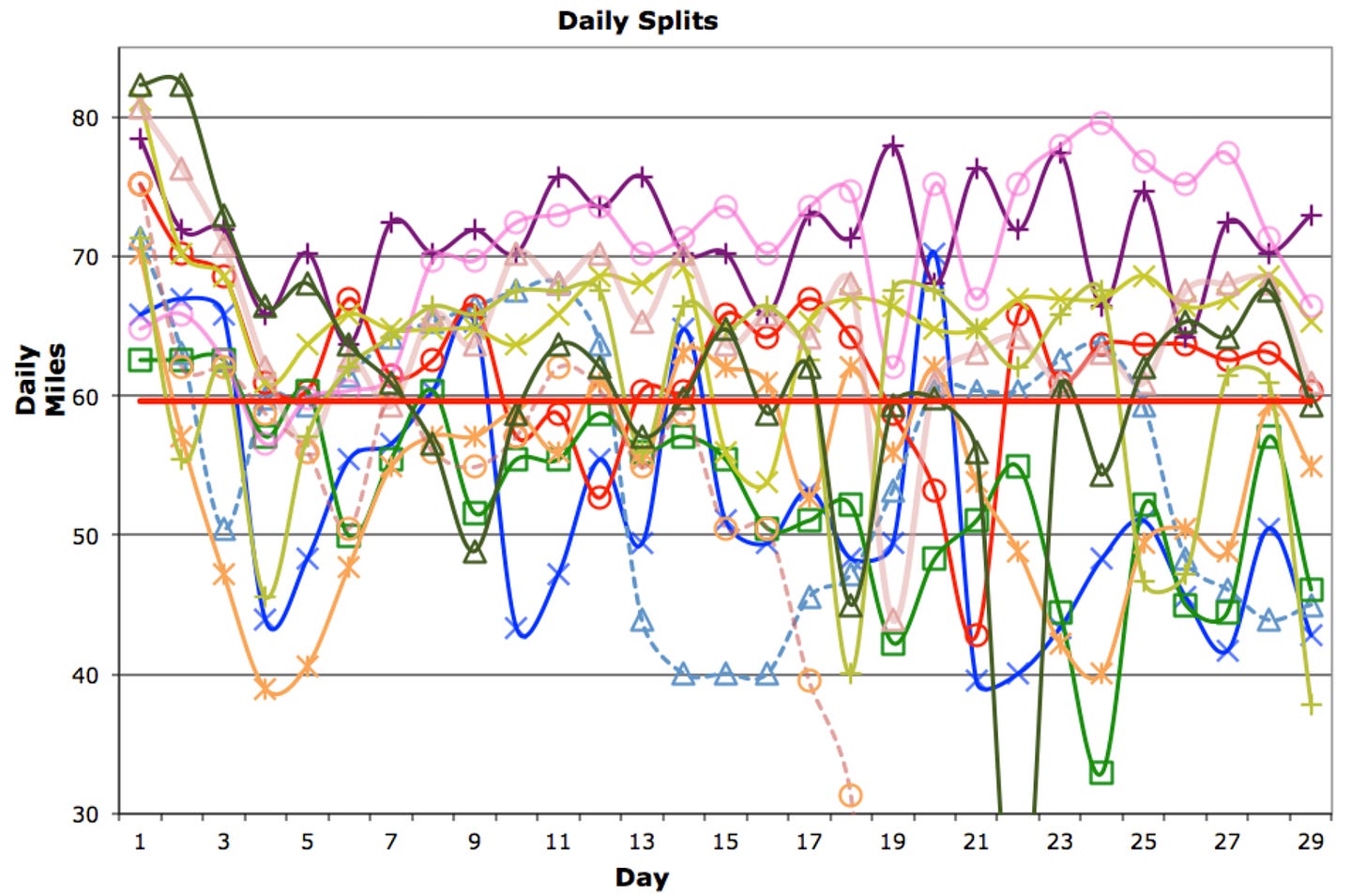Obsession with Data
Some people are sick of the data guys. Heck, I never went in for 'em!
Obsession with Data. What’s that about?
Yesterday afternoon Nate Silver was trending again on Twitter. That seems to happen a lot! Twitter loves talking about “Data Wizard” Nate Silver. This time, it seems, ABC News is not going to renew his contract. Which makes a lot of people happy. Because, on Twitter anyway, people are always unhappy about Nate Silver. Lots of reactions like this.
“Good riddance!”

One of the major themes seems to be: “His data is good, but his political takes are the absolute worst!” They never like hearing his vaguely centrist/libertarian opinions. They want him to stick to what they think his job is- telling democrats they are going to win the next election.
Silver got a start in sports, as kind of a moneyball-type of statistics guy, and then he moved into politics. After he predicted Obama’s election win and got 50 out of 50 states correct everybody thought he was a genius. (He might be a genius I don’t know, but I think a lot of people can predict state-by-state elections when one guy is way ahead.)
But back then everyone was in love with “data people” anyway. They thought they could do no wrong! The sports world became obsessed with the stats guys, and then Wall Street became even more enamored, especially during the decade leading to the 2008 collapse.
The thing is, data guys have always been overrated IMO, not because their data is bad, (you have to assume in most cases, it’s good, true data. I mean they’re the data guys, right?) The problem comes when they take actions based on that data. That’s always when you run into problems. Of course, in most cases, it’s someone else taking the actions, as it was with the big banks back before the crisis. The banks wanted to make more money and were looking for new ways to squeeze yield out of the market. The data guys wrote complex formulas for them designed to basically mint money by taking bets on the mortgage market (you know, all that credit-default-swap stuff) and the data guys were their gurus.
It went like this: The banks say to them “Hey, how solid is this data?”
And the data guys say “Oh, very solid. Unless there’s a historic downturn in the housing market, this is a guaranteed way to make money.”
And the banks say, “Yeah, about that ‘historic downturn’ stuff, what are the chances that that could happen?”
And the data guys say, “That’s never happened.”
And the banks say “Give me a number. What are the chances?”
And the data guys say, “It’s difficult to come up with an exact number because of all the variables.”
But the bank say “Your best estimate. That’s what we pay you for, right? Say, one-in-a-million?”
And the data guys run the numbers and say something like “Based on past performance, more like one-in-a hundred thousand.”
Well, that was good enough for the banks- they decided to put the combined wealth of every American on the casino table, and of course they lost. They believed the data guys! But of course, past performance did not apply here, because nobody had ever put the entire housing market on the casino table before. And when you do unprecedented things, other unprecedented things happen.
I’m aware that I’m simplifying a lot here, but this isn’t about “The Big Short and how it all went down,” it’s about how we trust the data too much. It’s not the data, it’s the things you do in response to the data. But people stare at some chart that the data guys made, and they think it has meaning. It doesn’t! They assume their big idea that they just came up with is “backed up” by the data. And if anyone challenges their dumb idea (few people do) they point at the chart and say, “Shut up science denier, look at this chart!”
Ex: Look at this chart! Don’t tell me you don’t see what I’m seeing. It’s so obvious!
So, you know where I stand, I think people put too much stock in the data guys. In sports, in the financial crisis, in climate policy, and during the COVID pandemic, it happened again big time. They had data guys making models based on nonsense because they didn’t know what was happening – but they had to make up numbers. It was like the opposite of what the banks did in 2008- the health bureaucrats went to the data guys and said, “Give us your worst-case scenario… how bad could it get? Don’t hold back...”
The data guys gave them the dumb fake numbers that they’d been ordered to give them, and then the bureaucrats jumped into action and made absolutely idiotic plans that had no chance of success even if the data was good! (and it wasn’t)
Their argument now seems to be “We’ll, we had to something!”
I hear people say stuff like this all the time. ”We didn’t know what we were doing! We did the best we could with the information that we had!”
No, you didn’t. You did the worst you could! When you don’t have the information, YOU DON’T DO THINGS.
So following the data has proved to be unwise again and again. But they’re still fascinated by the data guys which is why everybody is still talking about Nate Silver on Twitter.
Breaking Update!: ABC denies the whole thing, putting out this statement: “There are no imminent decisions about our relationship with 538.”

This photo of colored pencils was the example photo that Substack used in the template for my first post. I grew fond of it as I wrote the post, so I think I’ll leave it.


